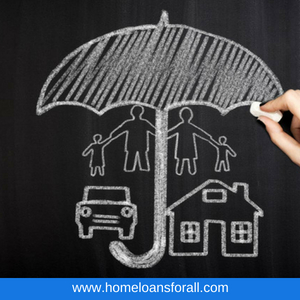 Buying a house is not all about the paperwork. The people involved, terms, and the fees are what matters the most. It is easier to agree to anything that comes up and sign the agreement to get over with. But a hurried decision might cost you a lot. If you are in a rush, there are some useful first-time home buyers programs you might be overlooking. The criteria for every program vary significantly and you may not qualify for all. Check out some house financing options that will save your budget big time.
Buying a house is not all about the paperwork. The people involved, terms, and the fees are what matters the most. It is easier to agree to anything that comes up and sign the agreement to get over with. But a hurried decision might cost you a lot. If you are in a rush, there are some useful first-time home buyers programs you might be overlooking. The criteria for every program vary significantly and you may not qualify for all. Check out some house financing options that will save your budget big time.
First time home buyers’ credit
The government offers a credit of 15% income tax for closing cards of qualified home buyers. The FTHBC applies to closing costs with a minimum of $5,000 which means a buyer’s credit of $750 (15% of 5,000). The credit should be claimed the same year that the home is bought. To qualify, you and your partner shouldn’t have owned a home for the last 4 years including the year you are purchasing.
Home buyers’ plan
This program allows the qualified applicant to withdraw an amount of money (a maximum of $25,000) from their RRSP account for building their home. A married couple may withdraw a double amount and they are not taxed upon withdrawal. But the money should be refunded back to RRSP for the tax exemption to work. You can do this for up to15 years. Potential candidates and their partners must not have owned a home in the last five years.
5% Money down
This is neither a rebate nor a deduction forum. But it simplifies the purchasing process of first-time buyers. Potential applicants can receive mortgage insurance even with as little as 5% money down. You need to qualify for a 5-year mortgage at a fixed rate. You must also prove that you can pay for the closing costs of 1.5% of the buying price. The mortgage amortization should not exceed 25 years and the home must have a value below $1M. Ensure that you have a solid proof of the source of your down payment. Depending on your particular circumstances, you might be asked for more information so it is advisable to consult a mortgage consultant.
Land transfer tax rebates
It is mandatory to pay for land transfer tax when you buy a home. This amount is deducted provincially depending on the buying price of your house. In some provinces, the land transfer tax is levied plus the provincial fee. If you qualify for the rebate, ask your attorney to claim it for you online through special software when registering your title deed.
HST new housing rebate
This is a rebate on a percentage of the HST upon purchasing a home. It could be a new mobile house, a significant renovation to the existing home, or a rebuilt house due to fire. You may apply for a 36% rebate on the part of the federal HST. The maximum you can get is $6,300 for a $350,000 house. If your house costs above $350,000, you’ll get a less rebate. Actually, you get nothing for a $450,000 home.
What you should know as a new home buyer
 Consider getting a real estate agent to help you get a good house. An agent listens to your needs, arranges for home inspection and visits, and finally helps you find the best price in the market.
Consider getting a real estate agent to help you get a good house. An agent listens to your needs, arranges for home inspection and visits, and finally helps you find the best price in the market.
Are you looking for a real estate agent? You can ask around to searching them online. After finding a home, you will need to make an offer. As long as you have a competent real estate agent, you can rest assured of making a good offer. Once the offer is accepted, make sure you have a good lawyer to help you in closing the deal.
Often, you will require a mortgage to buy your home. There are many sources of mortgage from credit unions, banks, insurance companies, and private lenders. If you take a mortgage, you will be expected to make regular payments for a particular period of time, normally 25 years. Don’t forget that the cost of a home loan is the interest rate. So, it pays to compare various rates before you choose a mortgage lender.
Other house financing help programs
The government has a lot of ways to help low-income earners who cannot afford the current home prices. For instance, refugees and new immigrants can get subsidized homes even though their names are put on a waiting list once they get to Canada. Upon arrival, immigrants should inquire about subsidized housing from organizations that deal with immigrants. Other programs are as follows.
Co-op housing
These are groups of houses and apartments that have a lower value than the average rent. If you get a co-op house, you must maintain and manage it yourself together with the members living in the apartments.
Post-secondary student housing
In most Canadian colleges and universities, there are housing opportunities for the continuing students and those that have graduated already. To see if you qualify, contact the school’s housing department.
 Emergency housing
Emergency housing
This is commonly known as ‘shelters’. It is a temporary place for the homeless or those who have been affected by natural calamities. People get the basic necessities in emergency housing programs e.g. showers, food, and money. It is a safe option in case you don’t have a place to sleep or have been evicted from your home. You can also seek refuge if your family abuses you. In emergency housing programs, the residents receive financial and legal advice, financial aid, as well as moral support. The program also provides clothing and diapers to the afflicted. If you are a victim of abuse, the staff won’t disclose your whereabouts to those who’ve been mistreating you.
Housing for seniors
Seniors in Canada get assisted housing which includes government-funded residences. They can also be privately sponsored by well-wishers.
Before you start house hunting in Canada, you should plan in advance for your house financing options. Know what you can afford and find out the available help programs in your locality. But there are some costs you should expect to cover for yourself such as home repairs, property taxes, and heating and cooling costs. Good luck buying your first home in Canada. Check out how much mortgage you can afford.











